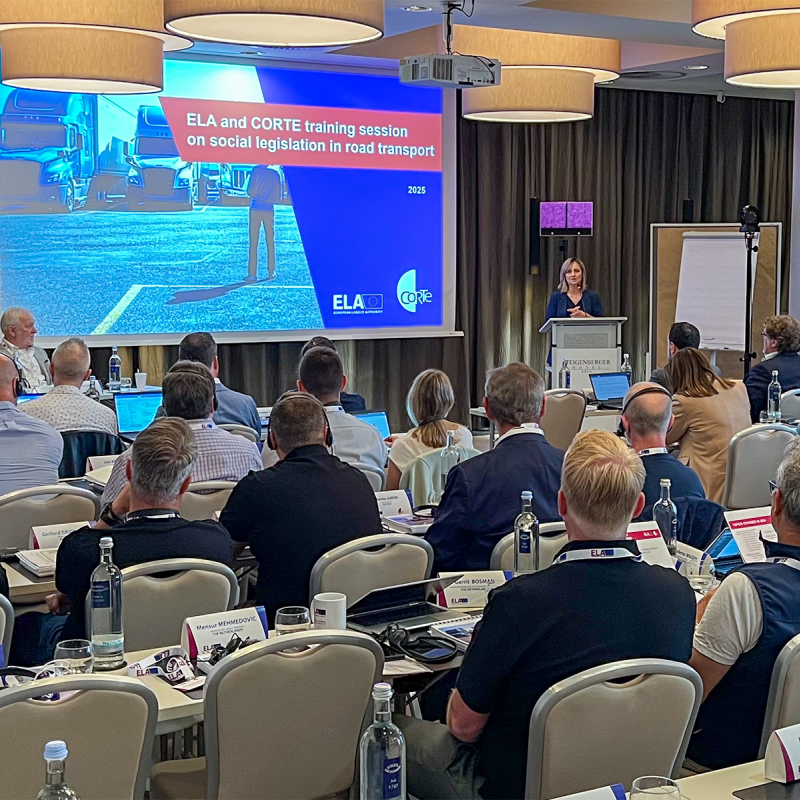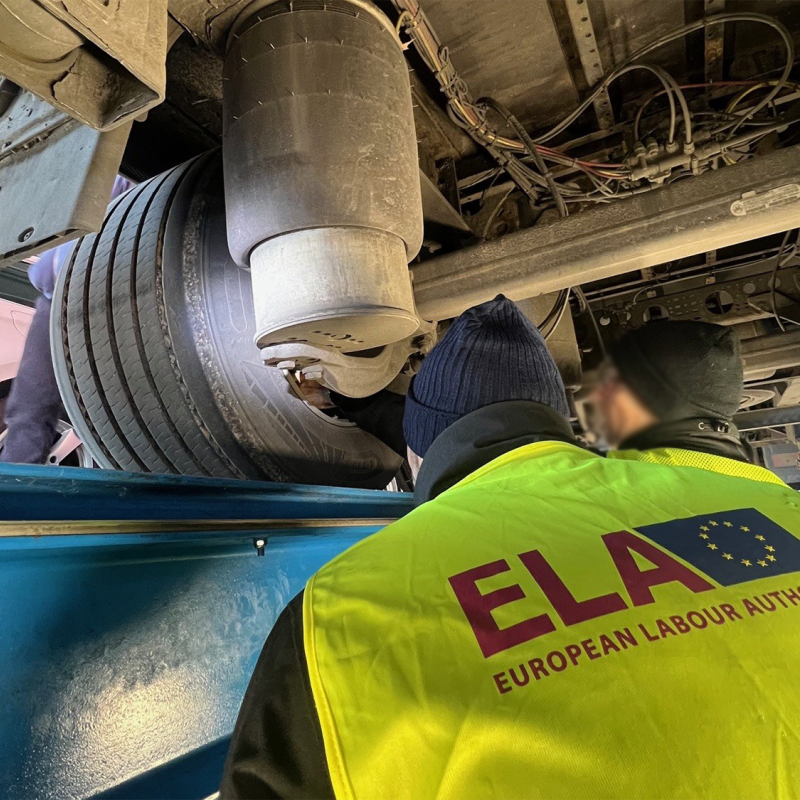At EU level, undeclared work is defined as "any paid activities that are lawful as regards their nature, but not declared to public authorities, taking into account differences in the regulatory systems of the Member States". Undeclared work is a persisting challenge negatively affecting workers, businesses and governments across Europe.
ELA actively supports Member States in tackling undeclared work. By enhancing collaboration among relevant authorities and other stakeholders, ELA seeks to combat undeclared work more effectively and efficiently, fully respecting national competences and procedures. Key activities include:
- Assisting EU countries in effectively addressing various forms of undeclared work.
- Initiating positive changes at the national level.
- Promoting improved working conditions and formal employment.
- Raising awareness about issues related to undeclared work.
The activities of the Authority in tackling undeclared work are supported by the permanent working group European Platform tackling undeclared work.
Understanding and tackling undeclared work
Undeclared work manifests in various forms, with common examples including work within formal settings that is partially or fully undeclared, often referred to as "under-declared work," "envelope wages," or "cash-in-hand." Another form involves self-employed individuals providing services without proper declaration, either to formal enterprises or individual clients. This phenomenon transcends economic sectors, spanning construction, renovation, gardening, cleaning, childcare, and HORECA (Hotel/Restaurant/Catering).
One in ten Europeans say they have purchased in the past year goods or services that might include undeclared work. These purchases concerned most likely goods or services for home repairs or renovations. One third of Europeans know someone who works undeclared. Half of Europeans perceive the risk of being detected by authorities as low (source: new Special Eurobarometer).
Undeclared work poses a significant challenge, adversely impacting workers, businesses, and governments throughout Europe. Addressing this issue primarily falls upon national authorities, employing three key enforcement bodies:
- labour inspectorates focusing on working conditions and safety norms,
- social security inspectorates combating fraud in contributions,
- tax authorities addressing evasion.
Moreover, in certain Member States, social partners, customs authorities, migration bodies, police, and public prosecutor's offices contribute to these efforts. Over the past decade, Member States have implemented various measures to intensify the fight against undeclared work, emphasizing deterrence through stricter sanctions and enhanced inspections. Preventive measures include tax incentives, amnesties, and awareness campaigns aimed at reducing undeclared work and promoting compliance with existing regulations.
Resources
Information and tools for reporting undeclared work and information relating to workers’ rights.
Select the country of your interest:
Videos
European platform tackling undeclared work
The European platform tackling undeclared work was set up as a permanent working group at ELA on 26 May 2021. One of the Platform’s important roles is providing new knowledge through studies that will lead to in-depth analysis on relevant issues. Practical toolkits focus on operationalising that knowledge and sharing it more widely with relevant stakeholders.
This Platform is an EU-level forum. It allows different actors, including social partners and enforcement authorities, such as labour inspectorates, tax and social security authorities, to
- exchange information and good practices
- learn from each other and together
- develop knowledge and evidence
- engage in closer cross-border cooperation and joint activities
The Platform plans:
- seminars and thematic review workshops
- follow-up and study visits
- mutual assistance projects and peer learning dialogues to help build capacity and share experience across Member States
The Platform is composed of
- Members: representatives of the Member States (federal ministries, labour and social inspectorates, tax and customs authorities or social insurance agencies) and the representative of The European Commission and the EU level cross-industry social partners
- Observers: representatives of social partners representing the sectors most affected by undeclared work, Norway and Iceland as members of the European Economic Area and organisations like Eurofound, the European Agency for Safety and Health at Work (EU-OSHA), the EU Agency for Fundamental Rights (FRA), and the International Labour Organisation (ILO).
- Members and Observers of the Working Group




